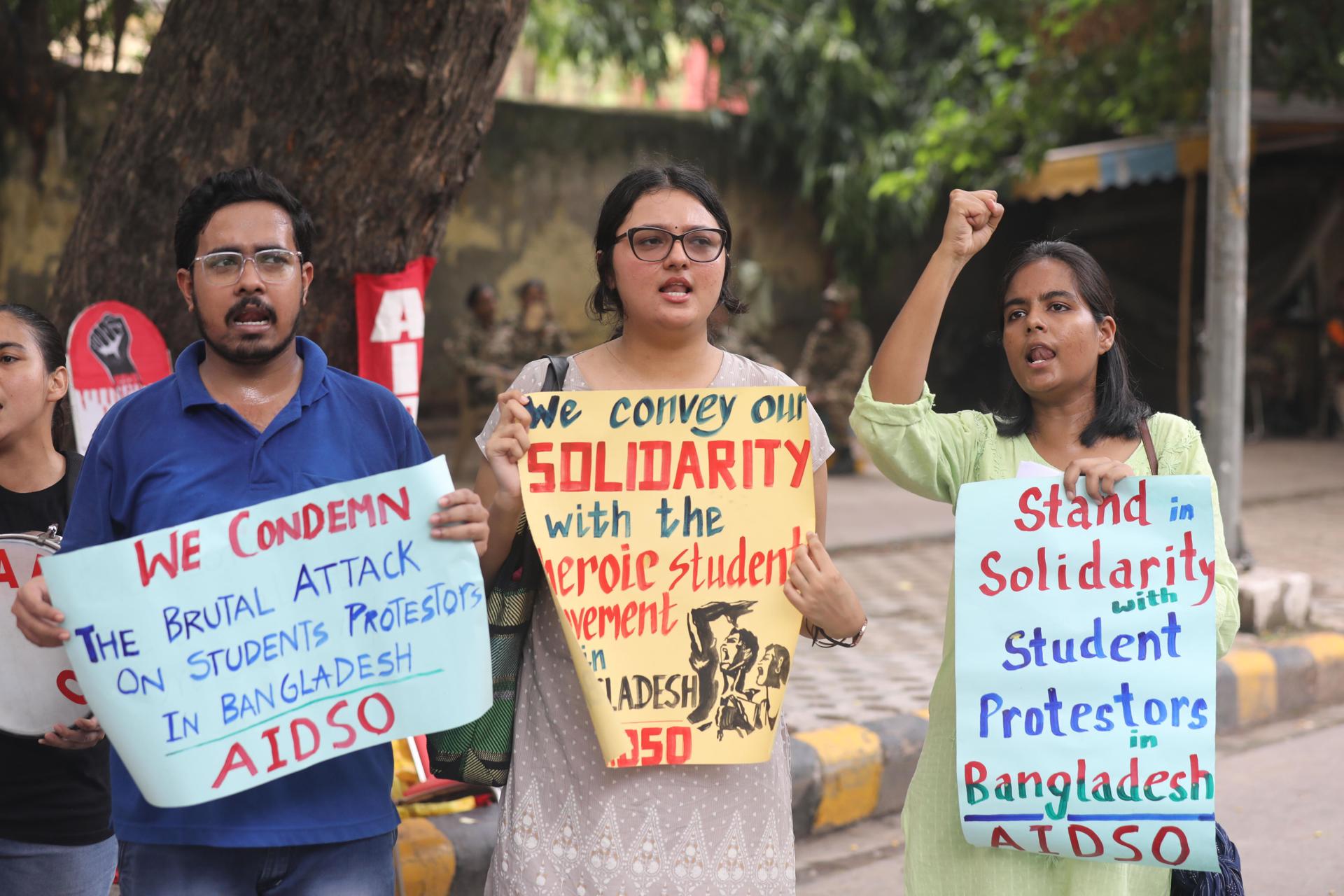Jobs
Shoot-to-kill orders amid deadly protests over jobs in Bangladesh – EFE Noticias

By Azad Majumder
Dhaka, July 20 (EFE).– Bangladesh has imposed a strict curfew with shoot-to-kill orders and a general communication and media blackout amid mounting casualties in violent student protests against public employment quotas.
At least 109 people have died, and several hundred have been injured in clashes between protesters and security forces since the protests turned violent on Monday, with two deaths reported on Saturday, according to an EFE tally.
The demonstrations, organized by student groups, demand a quota system annulled that reserves about one-third of government jobs for the families of veterans of the 1971 independence war, a group seen as sympathetic to the Bangladeshi government.
Protesters argue that the quota system is discriminatory and benefits supporters of the ruling party, the Awami League, while the government defends it as a way to honor war veterans.
The government has imposed a curfew, with orders to “shoot on sight” at mobs and has blocked mobile and internet communications, effectively isolating the country from the rest of the world and paralyzing the work of independent media.
Authorities have also closed universities, schools, and banned public gatherings.
Data from major hospitals in the Bangladeshi capital indicate that Friday was the deadliest day of the protests with 59 deaths, many of them students.
Authorities have not yet provided an official count of casualties.
“The rising death toll is a shocking indictment of the absolute intolerance shown by the Bangladeshi authorities to protest and dissent,” an Amnesty International statement said.
“The unlawful force used against protesters shows a callous disregard for the right to life and an abject failure by law enforcement officials to uphold their obligations under domestic and international human rights law.”
The rights group criticized the information blackout “during what has been a week of escalating violence and heavy-handed crackdown on student led protests across the country.”
The nationwide communication blockade has not only cut off internet access but also phone calls and text messages, particularly from abroad. Digital media outlets have been down for days, and only government-affiliated television channels remain operational.
Despite the strict curfew, protests and clashes have been reported in various parts of the country, prompting security forces to intervene.
The army patrolled the streets, urging people on loudspeakers to leave protest areas.
“The army is not taking violent action, but the police are firing shotguns. The protesters are mainly ordinary people,” a protester told EFE.

In an attempt to calm the situation, authorities have declared general holidays for Sunday and Monday. Additionally, textile factories have been closed on Sunday for safety reasons to protect workers.
The situation remains tense and volatile in Bangladesh, with no resolution in sight, as students are reluctant to engage in dialogue with the government.
The government canceled Prime Minister Sheikh Hasina’s official trips to Spain and Brazil, which were to begin on Sunday, due to the worst crisis she has faced since taking office for the fourth consecutive time in January. EFE
am-igr-ssk









